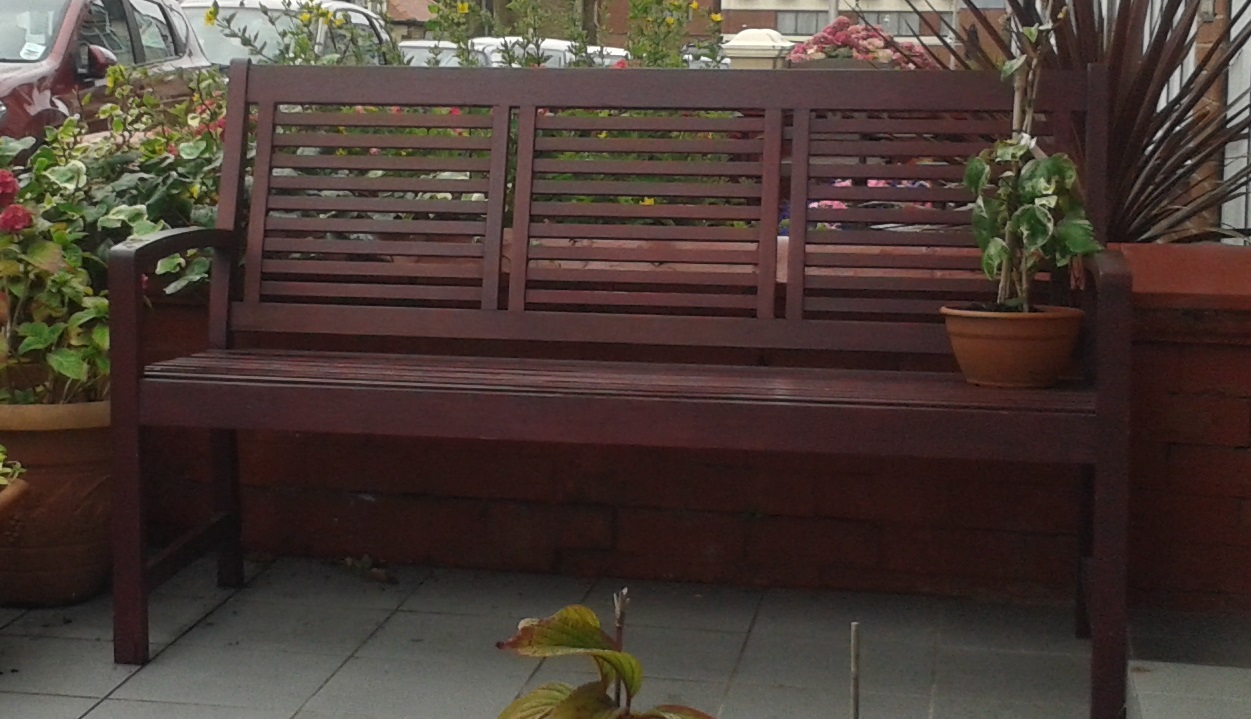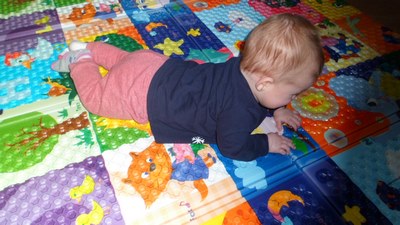Starting a family abroad? What lies ahead of this big adventure? Life in a foreign country is not without its fair share of challenges. Add a baby to the equation, and it’s even more interesting. Many people decide to head back home when the time comes to start a family. And who can blame them? Having a baby is a wonderful milestone for every parent, but it’s tough, no doubt about it. Any extra set of hands, as well as the emotional support you get from your family, is priceless at this special but difficult time.
I knew all along that I wouldn’t be following the crowd by going back to Slovakia when I became pregnant. Over the years, I’ve settled here with my other half who is Albanian. Of course, I had my worries and doubts about the decision to have a baby abroad and how will I cope without the family around. But we’ve done it anyway, and now that my baby is over one year old, I think it’s a good time to look back at the whole experience and share some thoughts with you about what to expect.
Prenatal care is different when you are abroad
 So, you’ve made the decision to start a family abroad. Now what? How can you best prepare yourself? The answer is to learn as much as you possibly can about the prenatal care, birth options and postnatal care.
So, you’ve made the decision to start a family abroad. Now what? How can you best prepare yourself? The answer is to learn as much as you possibly can about the prenatal care, birth options and postnatal care.
Things will most definitely be different in your new country than in your home country. The care women receive during pregnancy tend to vary significantly from one country to another. To avoid a disappointment, it’s a good idea to do some research about the prenatal care you are likely to receive.
I’ve lived in the UK for many years before I became pregnant, so I had some idea about the healthcare system here and what to expect while pregnant. I knew I would only see a midwife (if the pregnancy is straightforward), not a doctor like in many other countries. There are ‘only’ two scans during the whole pregnancy if there aren’t any problems. This also varies. It’s not uncommon to have three and more scans during your pregnancy in other countries.
While to some, the UK care for pregnant women may seem insufficient, or inadequate, I couldn’t disagree more. Yes, it is more relaxed than in Slovakia, but it’s also very friendly and reassuring. I was constantly reminded that if I have even the slightest worry about my unborn baby, I should call the hospital straight away.
Other things to consider are ante-natal classes. They are great to give you a better understanding of what’s coming. Yes, you can do all the research online these days, but it’s still nice to attend these classes. If not for anything else, at least you get to meet other mums-to-be in your local area. You should get more information about ante-natal classes from your midwife or doctor.
Do you have to pay for your healthcare in the country you reside in? In the UK, the NHS (National Health Service) is free, but things are very different in other countries, where you have to pay. So, just bear that in mind.
Birth experience can also vary significantly
Giving birth abroad may seem like a scary experience. So again, find out as much as you possibly can about the birth options in the country you live in. Where can you give birth? Hospital, home, other places? What painkillers are available? How long do you stay in the hospital after the birth? What support can you get after the birth? For example, with breastfeeding, which can be a bit of a struggle for many new mums at the beginning. Can you take a tour around the delivery and maternity ward in your chosen hospital?
I was lucky enough to have a friend who gave birth to her baby in the UK a year before me, so she was my go-to person anytime I had a question about pregnancy and birth. I asked everything about her experience, and it gave me a peace of mind when my time came to give birth to my baby.
Don’t know anyone, who’s gone through a similar experience? No worries. You can read about experiences of other expat women who gave birth in your chosen country on expat forums. Taking the UK as an example as I live here, there is also plenty of information available on NHS website about pregnancy and birth. The information is out there; everything is at your finger tip. Use it to your advantage, so you really know what to expect. Plus, the midwife or the doctor should be able to answer all your questions.
I’m so happy to have given birth in the UK. I couldn’t have wished for a better experience and medical care me and my baby received here. When I hear about some birth stories in Slovakia, where you can’t choose a birth position, you are not allowed to drink, and they use drugs to speed up delivery even if the woman doesn’t need them, I know that my decision to have a baby in the UK was the right one. You can read more about my birth experience here.
Traveling during pregnancy
If you decide to have your baby abroad, you will probably travel to see your family at some stage of your pregnancy. There are some things you may consider before you book your flights. The best time for your journey is most likely the second trimester. There is that not very pleasant sickness period in first trimester some expectant women suffer from. That wasn’t my case, fortunately, but if you suffer from morning sickness, nausea or vomiting, it’s probably better to wait till the symptoms disappear before you fly. You know, the take-off, landing and maybe few turbulences in between can cause even more distress to your already unsettled tummy.
Make sure you check the airline you are flying with and their guidelines for traveling while pregnant. Many airlines won’t allow you to travel beyond the 36th week of the pregnancy. With some airlines, it may be sooner. Even if you travel before the 36th week, you will still need to get some letter from your midwife or doctor, confirming that you are fit to fly, during later stages of your pregnancy.
It’s also wise to choose an aisle seat for the flight. Why? Because pregnant women need to visit toilets more often than your fellow passengers would have an understanding for if your seat was near the window, and they would have to make way for you every half an hour.
if you have any concerns about flying while pregnant, always consult your midwife or a doctor.
Family visits once your baby is born
You’ve had your baby, wheey, congratulations. It’s only natural that your family will want to meet the new addition as soon as possible. I wanted my family to come and visit us straight after the birth of my baby. But it was difficult for all of them to arrange holidays at the same time. In the end, I had my parents and sister coming first, and my brother and sister-in-law after when my baby was already three months old.
It was an ideal situation for me. I loved that I had some help with a newborn, but also that my brother and sister-in law kept me company later on. Plus, my best friend came to see us in between those family visits as well. So, I think it’s a good idea to spread the visits over a few months period to keep you company and provide the support you need.
Prepare for challenges
 Isolation and loneliness. So common when you are a first-time mum. That’s when a good support network comes in. But wait a minute. You live abroad. There is no family around to offer their support and help with a baby on a regular basis. Those first months of motherhood are probably the most challenging. It’s that transition from your old ‘care-free’ pre-baby life to suddenly being responsible for another human being 24/7.
Isolation and loneliness. So common when you are a first-time mum. That’s when a good support network comes in. But wait a minute. You live abroad. There is no family around to offer their support and help with a baby on a regular basis. Those first months of motherhood are probably the most challenging. It’s that transition from your old ‘care-free’ pre-baby life to suddenly being responsible for another human being 24/7.
You won’t get a free baby sitting, and no one will do your laundry, cook or clean the house for you. They say housework can wait. Baby is your priority at the moment. To a certain extent, they are right. But there will come the point when you don’t have any more clean plates to eat your lunch from (if you are lucky enough to have a time for lunch). You’ll also run out of newborn clothes pretty fast. When you have to change your baby’s clothing three times a day due to those messy nappy changes, it’s easy to see why.
So where can you get some support? Well, you hopefully have your partner or husband to start with. Yes, he is working, but he can still help around a bit. Consider joining local baby groups to meet other mums who may be in the same situation as you. You may not find a new BFF straight away, but just talking to someone with a common ground can help. Get out of the house as much as you can. I found that even a short walk outside can boost my energy levels and lift my mood instantly.
In summary
My pregnancy and a delivery of my baby abroad have been mainly a positive experience. Of course, there are complications you may encounter along the way and not having a family around for support is hard. But once you make that decision of starting a family abroad, you have to take into account the many challenges you are likely to face. Especially, once your baby is born, and the feeling of isolation from your ‘old’ life sets it. These are some of the things you may expect on your journey. Everyone will encounter other struggles as well, and I would love to hear about them. How was your pregnancy, birth and postnatal period abroad? Are you at the beginning of this adventure? I’d love to hear from you too.
Zuzana




